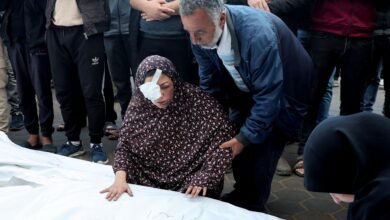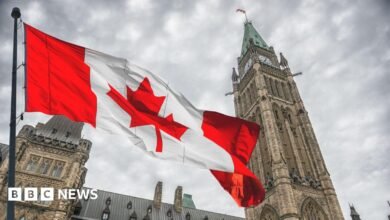Georgia’s PM Kobakhidze hits back as protests and resignations intensify

Kobakhidze told the BBC’s Steve Rosenberg at a news conference that Georgian Dream was still “committed to European integration… and we are continuing on our path to the European dream”.
And yet an increasing array of public officials do not appear to believe that is the case. Several ambassadors have resigned, and hundreds of civil servants and 2,800 teachers have signed letters condemning the decision to put EU accession on hold.
Many Georgians have been shocked by the level of violence directed at Georgian journalists as well as protesters. Dozens of reporters have been beaten or pepper sprayed and some have needed hospital treatment.
Georgia’s human rights ombudsman Levan Ioseliani said “this is brutality”, and he appealed to police not to abuse their power. On Sunday, the prime minister said it was opposition groups and not the police that had meted out “systemic violence”.
Georgian ex-ambassador to the EU Natalie Sabanadze, now at Chatham House in the UK, believes the level of violence, the string of resignations and civil disobedience indicate a “qualitative change” to the protests now taking place.
“Maybe [the government] thought people would be scared, but it’s not working out like this,” she told the BBC. “Yesterday civil society activists and artists went to the public broadcaster and took it over and forced their way into the live stream. I’ve seen this before, in pre-revolutionary Georgia [in 2003].”
Georgia’s pro-Western president, Salome Zourabichvili, is due to step down in a matter of weeks, however since last month’s contested parliamentary elections which opposition parties have denounced as rigged, she has become a powerful figurehead, rallying protesters against the government and calling for a new vote.
Source link



